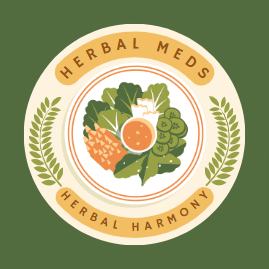In an era marked by rapid technological advancements and synthetic pharmaceuticals, **herbal medicines** are experiencing a renaissance. Rooted in centuries of tradition and supported by modern scientific research, herbal remedies offer a unique approach to health that emphasizes natural healing and holistic care. This article explores the growing interest in herbal meds, their benefits, the scientific basis behind their effectiveness, and their role in contemporary health and wellness.
### **The Revival of Herbal Medicine**
Herbal medicine, also known as phytotherapy, involves using plants and plant extracts for therapeutic purposes. This practice has been a cornerstone of human health care for thousands of years. From ancient Egyptian papyri and Chinese texts to traditional medicine systems like Ayurveda and indigenous healing practices, herbs have long been used to treat a wide range of ailments. Today, the resurgence of interest in natural remedies reflects a broader movement towards holistic and integrative health care.
### **Benefits of Herbal Medications**
Herbal medications offer several compelling benefits that contribute to their popularity:
#### **1. Natural and Less Processed**
Herbal remedies are derived from plants and typically involve minimal processing compared to synthetic drugs. This natural approach aligns with a growing preference for less chemically-altered health solutions. The use of whole plant extracts allows for a broad spectrum of beneficial compounds to work in harmony.
#### **2. Holistic Health Support**
Unlike conventional drugs that often target specific symptoms, herbal medicines often aim to support overall health and well-being. For example, adaptogens like ashwagandha and holy basil help the body adapt to stress and improve resilience, addressing not just symptoms but the underlying health challenges.
#### **3. Fewer Side Effects**
Herbal medicines are often perceived as having fewer side effects compared to synthetic pharmaceuticals. This is due to their gentle action on the body’s natural processes. However, it is important to recognize that “natural” does not always equate to “safe,” and some herbs can have side effects or interact with other medications.
#### **4. Personalized Approach**
Herbal medicine offers a personalized approach to health care. Practitioners can create customized formulas based on an individual’s unique health needs and conditions. This personalized approach can enhance the effectiveness of treatments and address specific health concerns more directly.
### **The Science Behind Herbal Medicines**
The effectiveness of herbal medicines is increasingly supported by scientific research, which helps to validate their traditional uses:
#### **1. Phytochemical Research**
Plants contain a diverse array of chemical compounds known as phytochemicals, which contribute to their medicinal properties. Research focuses on understanding these compounds, such as flavonoids, alkaloids, and terpenoids, and their effects on health. For instance, the curcumin in turmeric has been studied for its anti-inflammatory properties.
#### **2. Clinical Trials and Evidence-Based Studies**
Modern clinical trials and evidence-based studies are critical in assessing the safety and efficacy of herbal remedies. Trials have demonstrated that herbs like echinacea may help reduce the duration of colds, while ginseng may improve cognitive function and fatigue. These studies provide scientific backing for traditional herbal practices.
#### **3. Standardization and Quality Assurance**
For herbal medicines to be effective and safe, standardization and quality control are essential. This involves ensuring that products contain the correct concentration of active ingredients and are free from contaminants. Reputable herbal product manufacturers adhere to stringent quality control measures to ensure consistency and safety.
### **Popular Herbal Remedies and Their Uses**
Several herbal remedies have gained widespread recognition for their therapeutic benefits:
#### **1. Echinacea**
Echinacea is commonly used to support immune function and may help reduce the severity and duration of colds. It is believed to enhance the body’s natural defense mechanisms against infections.
#### **2. Ginger**
Ginger is renowned for its digestive benefits and is often used to alleviate nausea, improve digestion, and reduce inflammation. It is a popular remedy for motion sickness and digestive discomfort.
#### **3. Ginkgo Biloba**
Ginkgo biloba is used to support cognitive function and memory. It is believed to enhance blood flow to the brain, potentially benefiting individuals with age-related cognitive decline.
#### **4. Lavender**
Lavender is well-known for its calming and soothing properties. It is commonly used in aromatherapy to reduce stress and anxiety, and lavender oil is also used for its potential to alleviate minor burns and insect bites.
### **Incorporating Herbal Meds into Your Health Regimen**
When incorporating herbal medicines into a health regimen, it is important to do so thoughtfully:
#### **1. Consult with Healthcare Professionals**
Before starting any herbal regimen, consult with a healthcare provider, particularly if you have existing health conditions or are taking other medications. Some herbs can interact with medications or have contraindications for certain conditions.
#### **2. Choose High-Quality Products**
Opt for herbal products from reputable manufacturers that follow good manufacturing practices. Look for products that provide detailed information on the concentration of active ingredients and have been tested for purity and safety.
#### **3. Monitor and Adjust**
Monitor your body’s response to herbal remedies and adjust dosages as needed. Herbal treatments can take time to show results, and individual responses may vary. Keeping track of any changes in health can help tailor the treatment to your needs.
### **The Future of Herbal Medicine**
The future of herbal medicine is promising as interest in natural and integrative health solutions continues to grow. Advances in research, quality control, and standardization are likely to enhance our understanding of herbal remedies and their applications. By integrating traditional knowledge with modern scientific insights, herbal medicine is poised to play an increasingly important role in comprehensive health care.
### **Conclusion**
**Herbal meds** represent a bridge between ancient healing practices and modern scientific research, offering natural and holistic solutions for various health issues. With their broad spectrum of benefits, fewer side effects, and personalized approach, herbal remedies are becoming a valuable component of contemporary health care. As the field continues to evolve, herbal medicine stands as a testament to the enduring power of nature in supporting well-being and enhancing quality of life.
